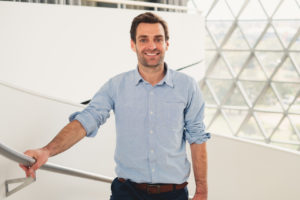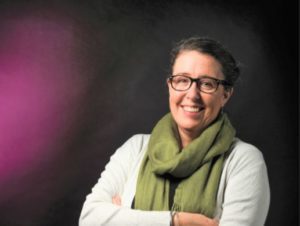
Several new research funding announcements have provided a raft of Flinders University researchers with the resources to undertake bold new projects, from Associate Professor Cedric Bardy’s brain cancer investigations through the Cancer Council’s Beat Cancer Project, to a suite of NHMRC/Medical Research Future Fund announcements.
New research hopes to unlock brain cancer treatments

New research from Flinders University and funded through Cancer Council’s Beat Cancer Project will investigate how the body’s own cerebrospinal fluid can impact chemotherapy and radiotherapy treatment for brain cancer.
The research, led by Director of the Laboratory for Human Neurobiology at SAHMRI, Associate Professor Cedric Bardy, aims to understand the influence of the human brain on the progression and identity of cancer cells.
“Cancer cells are notoriously clever and we suspect the biochemistry in the brain makes them even smarter,” Associate Professor Bardy said. “A solid tumour can be removed from the brain but there are always rogue cancer cells left behind. We think there’s something about the brain biochemistry that helps these cells change their identity and become resistant to treatment. Our project aims to unmask these new identities so we can plan targeted, personal treatments to eliminate these remnant cancer cells.”
The 12-month project is one of five projects funded through the latest round of Cancer Council Beat Cancer Project grants – a collaboration between Cancer Council SA, SAHMRI, the State Government and the three South Australian Universities that has invested $10.07 million towards strengthening South Australia’s cancer research workforce in the past five years.
Professor Robert Saint, Flinders University Deputy Vice-Chancellor (Research), thanked Cancer Council SA for its generous support. “First-class medical and health research at Flinders University, including vital areas of neuroscience and clinical oncology, is supported and enabled by the generous support of organisations such as Cancer Council SA,” he said.
New round of NHMRC funding recipients named
Flinders University researchers were beneficiaries of NHMRC grant money in the latest round of funding announcements, being a part of projects led by other institutions.
Dr Claire Hutchinson (College of Nursing and Health Science) is part of an application led by Deakin University on ‘Defining the economic and social return on investment of cancer information and telephone support services for all Australians’ which received a grant of $936,786 (Flinders University amount $86,945).
In other NHMRC/Medical Research Future Fund announcements, Flinders researchers will join other projects led by other institutions, including:
Professor Mike Kyrios (College of Education, Psychology and Social Sciences) working with lead Professor Michael Berk (Deakin University) and other investigators on a $11.998 million grant (APP2006296), entitled ‘Mental Health Australia General Clinical Trial Network (MAGNET)’.
Professor Jonathan Craig (College of Medicine and Public Health) working with Associate Professor Germaine Wong (University of Sydney) on a $2.894 million grant (APP2006216) to conduct ‘An adaptive, randomised controlled trial to treat polyomavirus infections (BKPyV) in kidney and kidney pancreas transplant recipients (BEAT-BK) trial’.
Professor Bogda Koczwara (College of Medicine and Public Health) working with Professor Raymond Chan (Queensland University of Technology) on a $1.625 million grant (APP2006113), investigating ‘A hybrid, implementation effectiveness trial of a nurse-enabled, shared-care MOdel between primary and acute care for proStatE cancer Survivors (The MOSES Trial).
Associate Professor Mihir Wechalekar (College of Medicine and Public Health) working with Professor Lyn March (University of Sydney) on a $2.720 million grant (APP2007502) entitled ‘Cost-Utility comparison of down-titration strategies for safer and more efficient use of biologics in adults with rheumatoid arthritis and psoriatic arthritis’.
Associate Professor Lucy Lewis and Dr Rachel Milte from the College of Nursing and Health Science, working with Professor Carol Maher of UniSA on a $1.49 million grant (APP2007395) will conduct ‘A multi-site guideline implementation randomised controlled trial to improve physical activity and screen time in Out-of-School-Hours Care’.
Portrait of juvenile lifers is published
Dr Simone Deegan is celebrating the release of her book Juvenile Lifers: (Lethal) Violence, Incarceration and Rehabilitation (published by Routledge), which centres on the life histories of 18 young men and 1 woman sentenced to life imprisonment for crimes committed before their 18th birthdays. The central aim is to reveal patterns emerging from the circumstances and experiences of these young people as each progresses in age, which include the intensification of serious violent offending in each young person’s life including key socio-economic, geographical, educational, and institutional factors, and their challenges associated with trying to transform within and beyond prison across a life sentence. It also investigates the commitment the supporters have towards supporting a positive future for the prisoner.
The book represents the first Australian phenomenology of the juvenile murder offenders or the circumstances of the homicides they commit – especially notable as researchers question the general application of US research findings, and instead point to a need for local portraits of juvenile murderers from different countries to sharpen international understandings of homicide. “More significantly,” says Dr Deegan, “this book is the first to capture how significant others of the offender (mothers/fathers, siblings, grandparents and friends) are affected when children kill, and their continuing roles, or lack thereof, in the offender’s life during and after prison.”
This work follows on from Dr Deegan winning the Flinders University Vice-Chancellor’s Medal for Doctoral Thesis Excellence in 2020.
New research data role for Jenny Fewster
Jenny Fewster, AusStage executive officer, has been appointed Humanities Arts and Social Sciences (HASS) Research Data Commons Program Manager by The Australian Research Data Commons (ARDC), and will commence her new role on 7 June. While she is leaving Flinders, Ms Fewster will remain a member of the AusStage Management Committee, with ARDC recognising the importance of AusStage as an integral part of the Humanities Research Data Infrastructure in Australia, and indeed internationally.

The HASS Research Data Commons (RDC) represents a $8.9 million investment by the Australian Government to help build a national HASS and Indigenous digital research infrastructure that will create new tools and platforms to extend researcher capacity.
The infrastructure will enhance research in a broad range of fields including education, cultural studies, linguistics, history, economics, commerce, tourism, law and legal studies, the creative arts and Indigenous HASS digital research infrastructure.
Ms Fewster is acutely aware of the diverse infrastructure needs of the digital humanities, with expertise in database design, metadata schemas, interoperability factors, resource discovery protocols, content management systems, data visualisation techniques and digital literacy. Her in-depth knowledge of the Australian HASS research sector will be of great value to the delivery of the new HASS RDC program.
Ms Fewster’s wealth of experience in the collection, management and dissemination of research and cultural heritage data and resources has seen AusStage, under her stewardship since 2003, become the largest and most extensive national cultural dataset on live performance.

